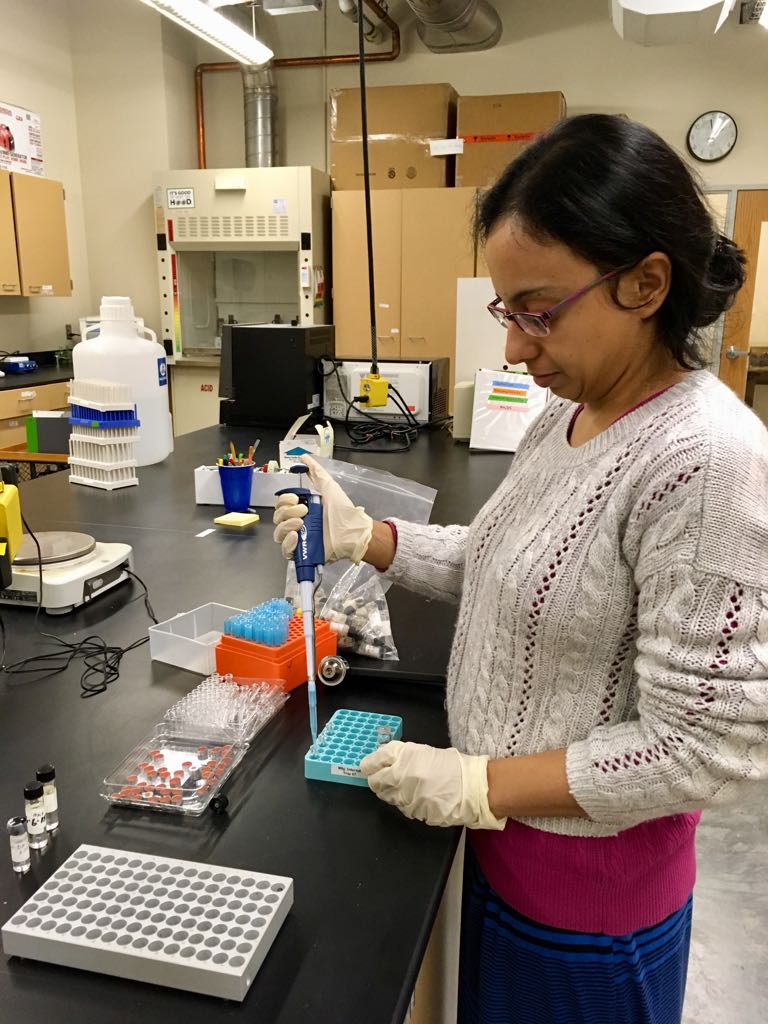Oxygen and Hydrogen Isotope Analysis of Water
|
Sample types
SIRFER will accept freshwaters, saline waters, brines, and plant and soil samples for water δ2H and/or δ18O determination. Sample preparation All samples should be stored in tightly sealed, gas-tight containers with minimal headspace and sent to SIRFER as soon as practical after collection. Upon arrival, SIRFER stores water samples in a cold room and plant/soil samples in a freezer. Although we can accept larger samples, a single 4 mL vial (e.g., VWR part 66011-526) is adequate for liquid water samples. Any sample with visible suspended sediment in it must be filtered through a 0.2 μm filter (e.g., VWR part 28143-946). This service will be provided by SIRFER at a nominal fee for any samples submitted with particulates. Clean freshwater samples can also be sent to SIRFER preloaded in 1.8 mL glass gas chromatography crimpseal vials (we recommend use of VWR vials 66020-953 and caps 46610-744 if possible). Preloaded vials should contain a minimum of 400 μL of water. Extraction of water from plant, soil or saline samples is offered for a fee. The amount of sample required depends on water content; these samples must produce at least 100 μL of extracted water, although larger volumes are preferable and will improve the accuracy of the analyses. Samples should be shipped to SIRFER as described here. A request for analysis and sample ID list should be emailed to us at the time of shipping. Special samples Clients who wish to submit isotopically enriched samples must contact the SIRFER manager (sirfer@utah.edu) prior to submitting samples. This email should provide information on the sample type, analytical services requested, the isotopic label used, and the estimated level of label present in the sample. We can provide analysis of most enriched samples, but analysis precision for high enrichment samples is usually poorer than for natural abundance samples. Duplicate analysis may be required to achieve precision acceptable to the client, in which case analysis cost will be twice the normal indicated rate. Analysis of artificially enriched samples without appropriate preparation can temporarily damage SIRFER's instruments and compromise analysis of samples for other clients. Clients who submit artificially enriched samples without notifying SIRFER will have their samples returned without analysis, and will be held responsible for costs associated with restoring SIRFER instruments to normal operational condition after the unexpected introduction of the isotopic label. Data archival option SIRFER is happy to be the first lab to offer clients the option to archive their water sample data in the Waterisotopes.org wiDB. This public database offers secure, long-term storage and several interfaces that enable open access to water isotope data. Requesting that we add your data in wiDB is the easiest way to meet your funding agency data archival requirements, increases the visibility of your work, and can help advance the research of others who might benefit from access to your data. Here's how it works:
Instrumentation Three analytical methods are available and used to provide robust analysis for waters with a range of chemical properties:
|
